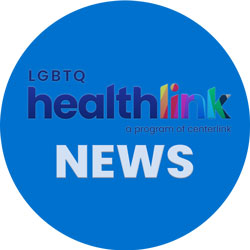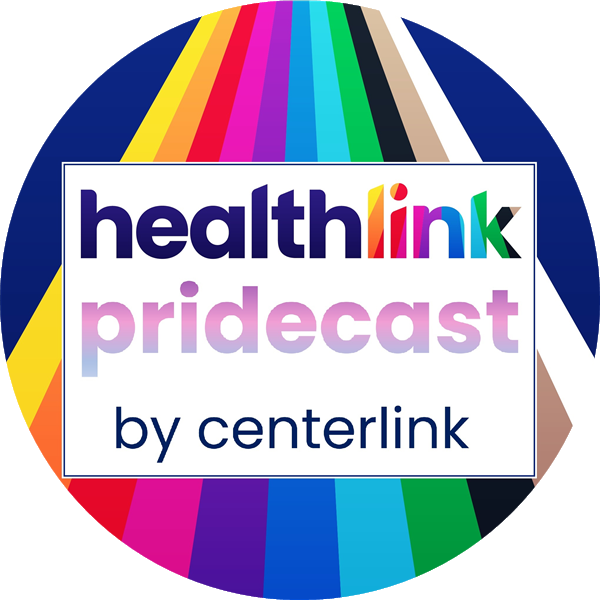Health Equity Data Surges – #LGBTWellness Roundup

LGBT HealthLink, 12/16/2022
Health Equity Data Surges
The All of Us research program, which is seeking to gather health information on 1 million-plus diverse Americans, announced two surge weeks – one for November and one for December – to boost enrollment in the program. The November week saw new sign-ups from all 50 states thanks to both national and community-level efforts, resulting in more than 3,900 new participants – the best week ever. All of Us is bridging gaps in what we know about health by allowing anyone – especially LGBT folks, people of color, and others who are underrepresented in research – to share information about their health. Learn more about the program and how it addresses LGBT health equity here.
Results from Genetics Research Reported
Speaking of All of Us, USA Today reported that the program has begun to share data on 150,000 participants who have taken the optional additional step of sharing genetic information. Fans of the Roundup may recall our interview earlier this year with Dr. Anthony Pho on how the genomics component of All of Us could improve LGBT health. USA Today reports that while people from marginalized groups, such as Black individuals, might be especially nervous to share this information, there is also a lot to gain – such as knowledge of risk factors that can be used to proactively protect one’s health.
U.S. Considers Loosening Blood Restrictions
Axios reported that the U.S. is considering plans to loosen restrictions on sexual minority men donating blood. The plan would change the three-month deferral for men having sex with other men to a individual “risk assessment” based on recent sexual activities. The U.S. has slowly moved from what was a lifetime ban to the three-month deferral, with the most recent change happening at the onset of the COVID-19 pandemic and resulting shortage of blood. That shortage has continued, and advocates say that lifting the rule – which has been described as being driven by stigma rather than science – would help raise supplies nationwide.
Monkeypox Gets Renamed
Politico reported that the WHO would rename monkeypox as “mpox” as they attempt to reduce stigma surrounding the virus. While mpox has existed for years, it began to show up across Euorpe, the U.S., and elsewhere over the past several months, especially among sexual minority men; that trend was exacerbated during Pride Month and other summar activities. Politico noted that LGBT groups and public health advocates had called for a name change for some time, and are likely to support the move, even though cases have subsided greatly since their summer height.
Behavior Change, Vaccines Improve Mpox Outlook
Speaking of mpox, the CDC released an update to its latest technical report, evaluating national and state-level cases. They found that declines over the summer were more likely due to factors like behavior change, as the impact of vaccination would likely have taken longer – but led to long-term improvements. As of mid-November, almost 700,000 first doses and 400,000 second doses of the vaccine had been administered nationwide.
Bi Folks Less Likely Out to Docs
USA Today reported on the challenge of enabling bisexual individuals to come out to their healthcare providers. Providers may be inclined to make assumptions about bisexual individuals’ orientation based on the gender of their current partner or other factors, and even providers that have sexual orientation on intake forms may not complete them properly. These factors, combined with broader issues of bi invisibility, help explain why bisexual men were about four times more likely to not disclosue their orientation to a provider compared to gay men, and bisexual women were about 2.5 times more likely to not disclose compared to lesbian women. Coming out to one’s provider is key to ensuring that unique needs and risk factors are considered.
CD4 Count and COVID Risk
JAMA published research finding that among people who are fully vaccinated against COVID-19, there was no increase in the likelihood of a severe “breakthrough infection” for people living with HIV compared to people not living with HIV. However, the study did find that people living with HIV who had a low CD4 count were at 59% increased risk of severe COVID-19 compared with people not living with HIV. The results highlight the importance of ongoing vigilance with respect to COVID-19, even for those who have been vaccinated, as well as showcase another benefit of quality antiretroviral care for people living with HIV.
School Board Member Bullied Out
The Asheville Citizen-Times reported that the city’s first transgender school board member – possibly the only in the state and one of a small number around the country – resigned following repeated anti-trans attacks, including being misgendered at a board meeting. An Arizona-based hate group was responsible for the attacks, a trend it has apparently repeated in districts around the country. The incident is particularly troubling given the attacks that LGBT-inclusive school policies and curricula materials have faced, including “Don’t Say Gay or Trans” laws; trans representation on school boards and other decision-making bodies could help to promote inclusivity.
Trans Youth Report Poor Sleep Health
Michigan Medicine published a study finding that trans teens and young adults were about four times more likely than their cisgender peers to have a sleep disorder. Data from 1.2 million people, including more than 2,600 trans individuals, found that trans youth were more than five times as likely as others to have insomnia and were three times more likely than others to have sleep apnea or another condition. Little research has been done regarding “sleep health” for trans youth, but the results are perhaps in keeping with what we know about the depression and anxiety that trans youth are prone to face due to issues like transphobia and victimization.
Youth Voice Preferences for Weight Terms
Pediatrics published a study examining youth preference for different terms relating to weight, and found that sexual minority youth reacted more negatively to about half of the terms tested than did heterosexual youth, suggesting a heightened sensitivity in what is the first study on this topic to include sexual orientation. The study found that the term “curvy” was one that was preferred by sexual minority youth compared to heterosexual youth, and was also preferred by girls over boys, as well as by Latinx youth over White youth. Black and Latinx youth also showed a preference for the term “thick.” The results dig deep into how loaded terms about weight affect diverse youth differently, which is important for adults to know to avoid weight-related shaming or stigma.




